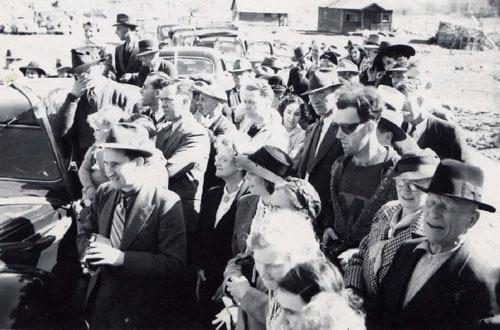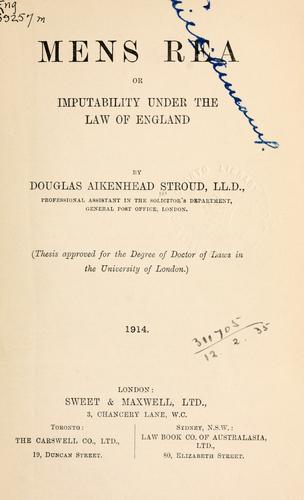 As a business owner its mind boggling to see the number of stupifying rules, regulations and nonsense spewed out of the government each year.
As a business owner its mind boggling to see the number of stupifying rules, regulations and nonsense spewed out of the government each year.New FCC rules, rules exchanging video rental information, privacy rules.
For me its always best to find a place to conduct business that's away from this sort of activity. Something that doesn't cross paths with all of this nonsense.
The "spirit of the law" is really what its all about. In an actual sense (though in the "real" world this is dwindling) as well as in the spiritual world.
People no longer have a sense of the "spirit of the law" - they only see the "letter."
For example, laws exist that prevent companies from disclosing information about movies you rent unless you explicitly say its okay on a rental-by-rental basis. The Video Privacy and Protection Act was created to prevent reports from uncovering you rented "Debbies does the Muppets" at the local video store during your Senate confirmation hearing.
This is a federal law that says if you hand the rental clerk (though soon there will probably be no more video rental stores - if there are any left around at all) a twenty and he prints out your neighbors rental history he, the clerk, is on the hook for a big fine ($2,500 USD according to the Wikipedia).
This law was passed in 1988.
Today Netflix wants to allow you, via Facebook, to share what you are watching. So some setting in Netflix lets Facebook grab information about what you are watching at any given moment and put it out on your profile somewhere.
But, because you'd have to explicitly tell Netflix this was okay about each show or movie due to this 1998 law Netflix does not allow it in the USA.
Apparently the law requires "written consent" (see this) - though I would imagine that since email and electronic communications have been elevated to "offical" status a simple "check box" on the Netflix site would be sufficient.
But here it seems the "letter of the law" has triumphed.
It reminds me of an Orthodox Jewish office-mate I once had thirty some years ago. Being Orthodox he once explained how "no work" was allowed on the Sabbath.
For example, you could leave the fan on before sundown (when Sabbath started - though it wasn't actually sundown either, apparently three specific stars had to be visible to mark its start). But, since operating a on/off switch was considered "work" you were not allowed to turn it on and off until the Sabbath was over.
So I wondered about this.
What about lighting I wondered...? Do you all sit around in the dark or light the entire Sabbath - not being allowed to operate the light switch?
Well, no, he explained. That was taken care of in Talmudic law eons ago. Learned Rabbi's decided that the model was a candle in front of the window. You could have a candle, already lit, in front of the window for lighting (but you could not light the candle on the Sabbath - that was considered work). But if the wind blew in and put the candle out that might be a problem so, they decided, it was not work (or whatever doing something on the Sabbath that's allowed is called) to close the window to prevent it going out.
In modern times this amounted to switches that had a light that was always on and a photocell.
Between them was a small model of a window that moved up and down. In the down position the window blocked the operation of the photocell and switched the current off. Open the current was allowed to flow.
The Orthodox folks, needing lights turned on and off, thereby simply operated the model of the window in place of a light switch. Doing this no one had to "work" on the Sabbath.
(Actually its far more complicated - especially these days - see this.)
So here we have centuries of learned writing (the Talmud) about how to get around the "letter of the law."
And we see this today with the complexities of old laws (and their "letter") designed for one thing being hijacked into problems for new things (like tracking Netflix viewing).
Sadly all of this complicates the "spirit" of the law.
What was actually intended by the original Sabbath law (an original Mosaic law)?
Does all this contrivance to "work around it" itself not constitute work?
Doesn't my appliance "work for me" on the Sabbath?
Isn't picking up the spoon to eat food involve "work"...?
Soon it will be impossible to tell what the "spirit" of our laws are here in the US. It will have been totally corrupted by conflicting legal nonsense. And the "letter," with its inconsistency and overly broad reach, will create, as I posted before, a citizenry of felons and criminals.
In the case of Orthodox Judaism the arrival of Christ put an end to most of this "legalistic behavior."
Christ points out, in Matthew 5:20-44, the difference between following the letter of the law and following its spirit. Christians are asked to follow the "high road" instead; in terms of understanding that the letter of the law is meant as a guide and that you should be living the "spirit" of what that law meant instead. The Jews not following Christ are left to their old, legalistic devices.
So the issue of "legalism vs. the spirit" is actually quite old, at least 2,000 some years.
Today lawyers and courts are cast in the role of Talmudic scholars adding commentary to the "original laws."
But their hearts, I am afraid, are neither pure nor religious.
They use the "letter of the law" to find excuses for those that are criminals or for those who have broken the "spirit" of the law with a legalistic escape.
And the today law is not simple - its intention not clear or conflicted. My office-mates Talmud was a small book he carried around (I am sure there's more too it - but the point is its not like the Federal Register where things made up by any number of people just accumulate).
How could someone even follow the "spirit" of today's US laws?










